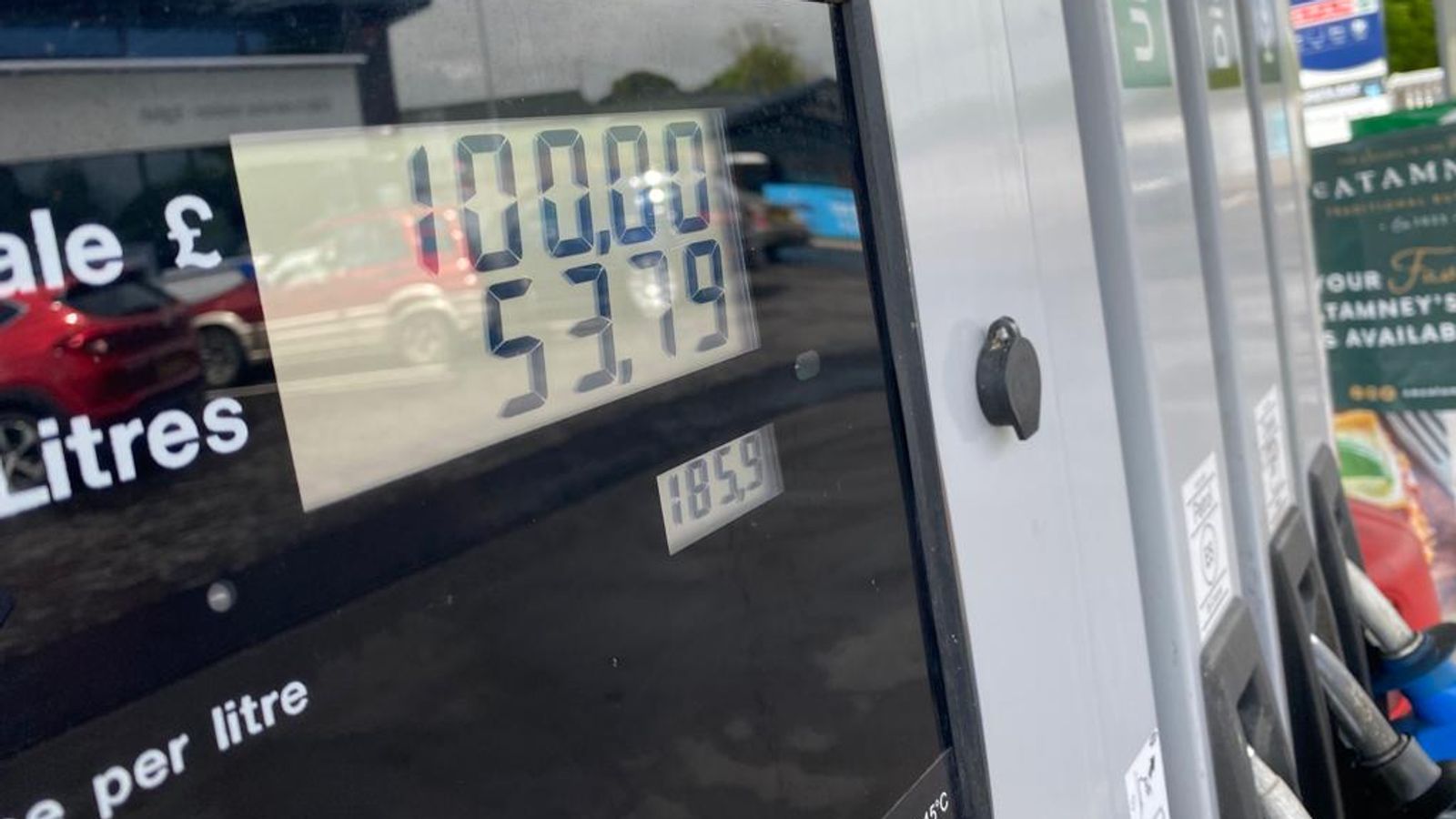As the average price of a litre of petrol hit a UK record high, motorists in Northern Ireland are paying a few pence less per litre, in part thanks to a price tracking service that offers greater transparency than in other parts of the country.
The average price for petrol in Northern Ireland today was 180.1p per litre, compared to the UK average of 182.31p, and diesel was 183.8p per litre, more than 4p cheaper than the UK average of 188.05p.
The Consumer Council of Northern Ireland’s Fuel Price Checker was introduced in 2020, and collates data from more than 80 service stations around Northern Ireland.
Updated on a weekly basis, it allows motorists to see the highest, lowest and average fuel prices in their area.
Live cost of living updates: Petrol prices ‘could climb another 20p a litre’
Groups like the AA say this has a deflationary effect on prices, as consumers know exactly how much they should be paying at the pumps, and can more easily avoid the dearer retailers.
The government-funded Consumer Council admits that there are a variety of reasons behind Northern Ireland’s less expensive prices, but says its tracking tool plays an important role.
Staycation giant Parkdean Resorts halts £1.6bn sale amid torrid economic outlook
Cost of living: Poundland warns customers are already cutting back on essentials
Even if you don’t drive, you’ll pay for the rise in petrol prices
Peter McClenaghan, the council’s Director of Infrastructure and Sustainability, told Sky News that “the AA have been very nice and have said that they think our tool is definitely helping keep prices down in Northern Ireland.”
“We’d be a little bit more modest, but certainly having a tool for consumers that enables them to see what the highest and lowest and average price in their town is helping people to shop around, and to get a good deal.”
The AA wants to see a similar price transparency adapted everywhere in the United Kingdom, and claims that when it was introduced in Austria, it had an immediate impact on prices.
At Daly’s Service Station at Eglish, Co Tyrone, motorists knew the value of shopping around.
Business owner Sharon McHugh, who runs a candle company, told us that “a tool like that would be helpful, of course it would. But I do shop around for fuel. I’ll hold out and wait and go to the cheaper station.”
In a rural area like Eglish, however, customers don’t have the same luxury of choice that those in urban centres do.
Oliver Rafferty, who runs a company that sells fixtures and fastenings to the building trade, told us that “it costs money to shop around, we buy local and we stay local, but with diesel and petrol prices, they’ve gone crazy.”
Prices in Northern Ireland may be lower than other parts of the UK, but so too are incomes, and everyone is being affected by the recent increases.
Read more:
Even if you don’t drive, you’ll pay for the rise in petrol prices
Why are fuel prices rising so fast and are we being ripped off?
Even the cheapest supermarket food items are surging in price
According to Martin Daly, the owner of the Eglish service station, said: “Every morning you’re waiting on the email coming through from the supplier looking at the price.
“Because if that’s the day that you have to buy and that’s the price you’re buying at, you’re looking oh, how am I going to put that price up on the totem pole?
Follow the Daily podcast on Apple Podcasts, Google Podcasts, Spotify, Spreaker
“People are going to say ‘crazy prices here’, but at the end of the day because of the cost, we can’t sell it at a loss, we have to make some sort of a margin, a profit on it.”
With prices set to rise for the foreseeable future, greater monitoring and transparency across the UK would at least offer motorists a clearer picture of where the least pain at the pump would be.










